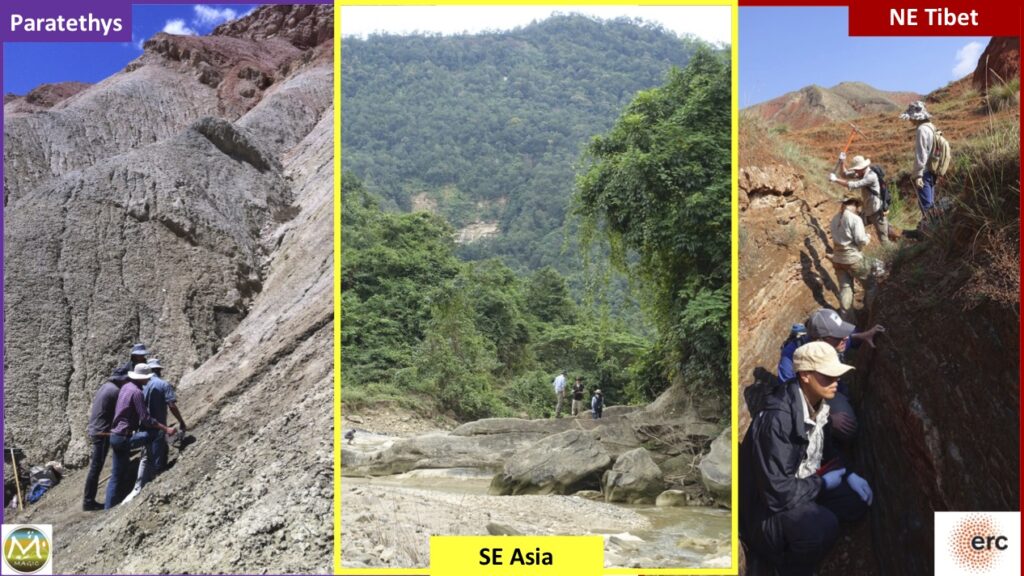EARTHSURF, investigating past and present Earth’s surface dynamics to quantify resilience to changes
This is an International Research Program (IRP) of the CNRS gathering various expert laboratories studying the surface of the Earth.
The surface of the Earth is host to many of the essential resources we rely on for our wellbeing.We extract from the Earth’s surface most of the food we eat, most of the water we drink and most of the mineral resources and energy we consume.
Understanding how the surface of the Earth responds to external forcing, whether natural or human-caused, is essential to preserving it and managing its use in a sustainable manner.

For this we need to study its present-day functioning as well as its past geological history, in order to:
- understand its natural (long-term) dynamics and stability
- define present-day and past states experienced by the Earth’s surface system and estimate their inherent variability
- predict and quantify its resilience to change (i.e., whether there exist thresholds or tipping points that can force the Earth’s surface system to transition between two states).
The study of Earth’s surface evolution, whether it is on geological time scales or in response to shorter-term anthropogenic forcing requires a multi-disciplinary approach. This is because the Earth’s surface is at the interface between the solid Earth and the hydrosphere and is host to most of Earth’s biota.
In practice, the main objective of the IRP is to provide a unique and stimulating environment for the training of young researchers (both at MSc, Ph.D. and post-doctoral levels). EarthSurf combines a field- and data-driven approach to problem-solving with a strong emphasis on quantification and modelling.
The research groups involved in the IRP come from three institutions/laboratories:
- GR: Géosciences Rennes, Université de Rennes 1 and CNRS, Rennes, France
- GFZ: Helmholtz Center Potsdam, GFZ German Research Centre for Geosciences, Potsdam, Germany
- University of Potsdam, Institute of Geosciences.


Our collaboration brings together a breadth of expertise and data/observations that are difficult to gather in any single institution. The collaboration will therefore allow us to address timely questions and problems concerning the Earth’s surface evolution and dynamics.
The students and post-docs in both institutions will be some of the main beneficiaries of this initiative with access to this rather unique pool of expertise and data/observations. We also investigate opportunities for developing proposals to obtain funding in both countries (eg. ANR, DFG, von Humboldt foundation, BMBF, DAAD). The IRP also provides a formal platform for applying to larger scale projects at interdisciplinary and international level (DFG-ANR, ERC, ITN and other Horizon2020 schemes).
We intend to organize:
- Frequent visits by MSc, PhD students and post-docs on specific research projects.
- A yearly meeting of PIs to develop strategy (find and agree on joint proposals, emergence of new topics, etc.).
- A joint workshop/school on Earth Surface Dynamics.

